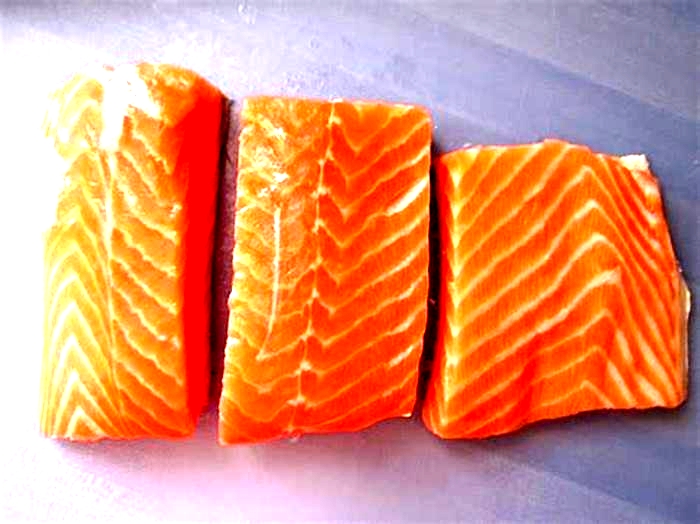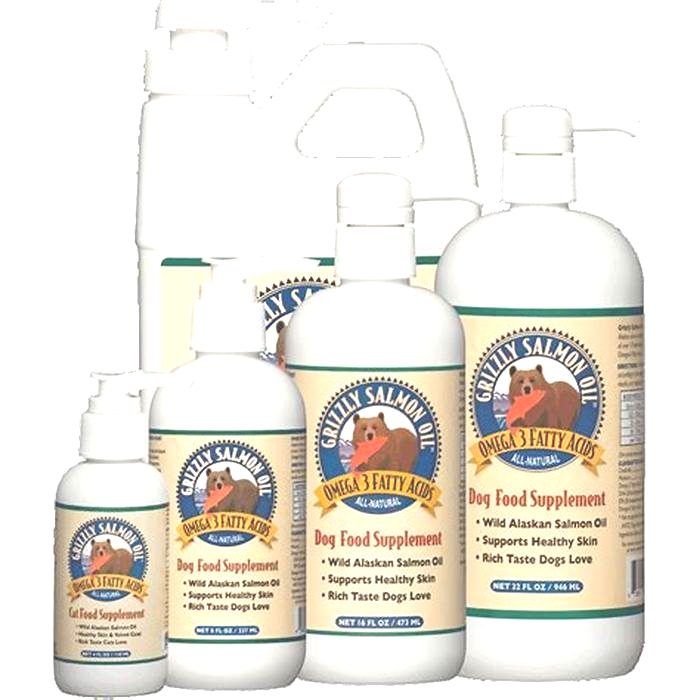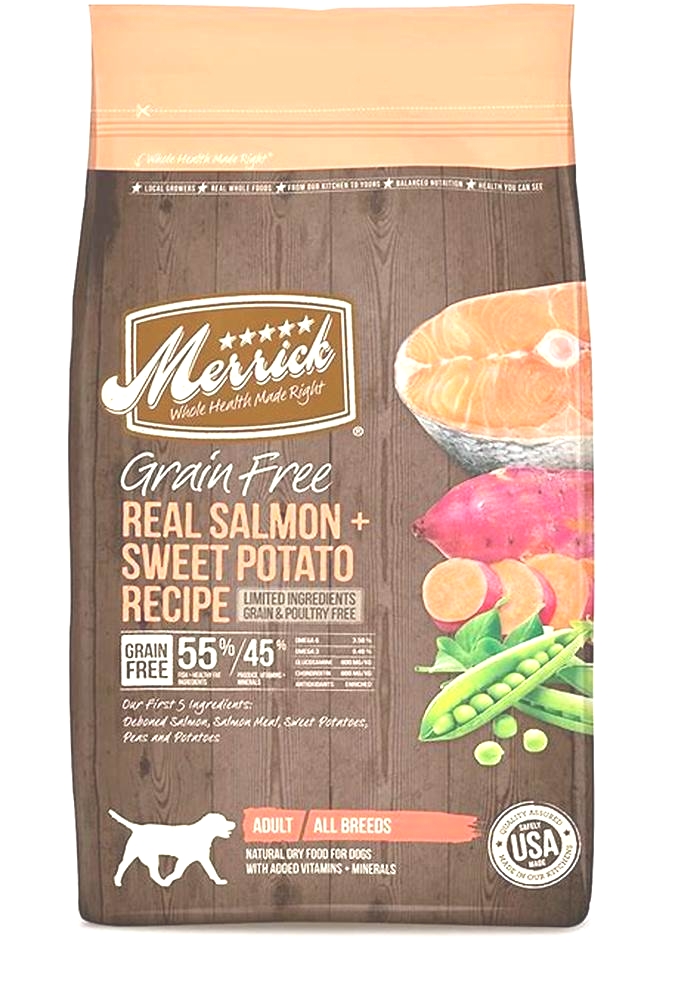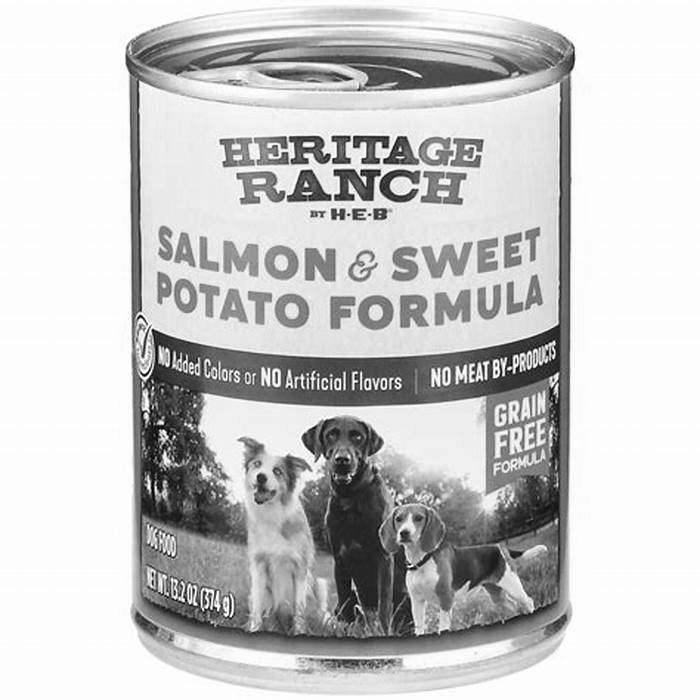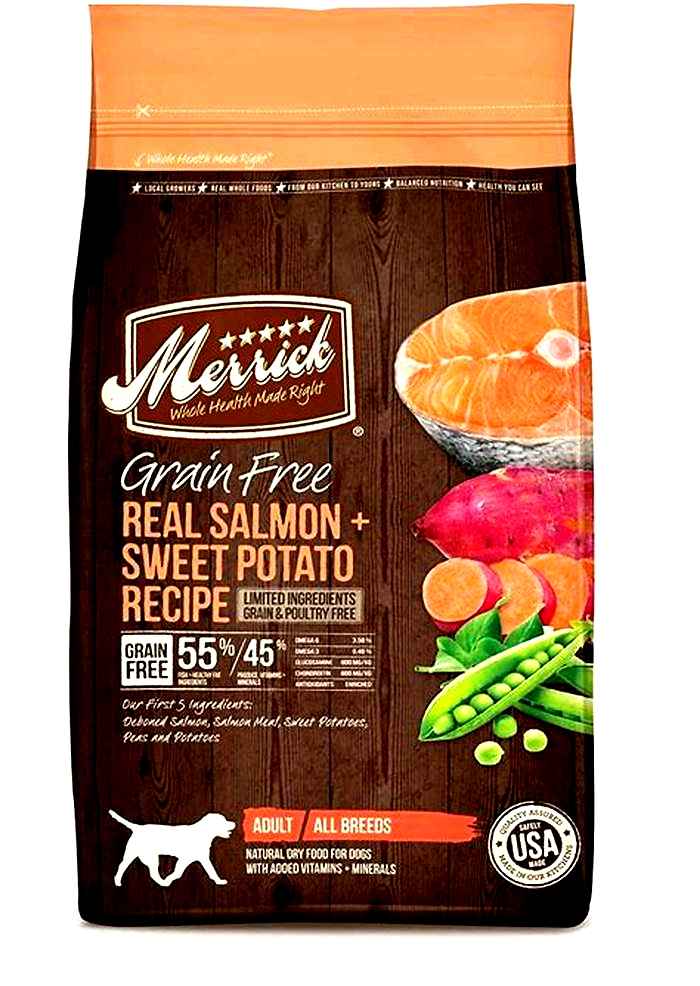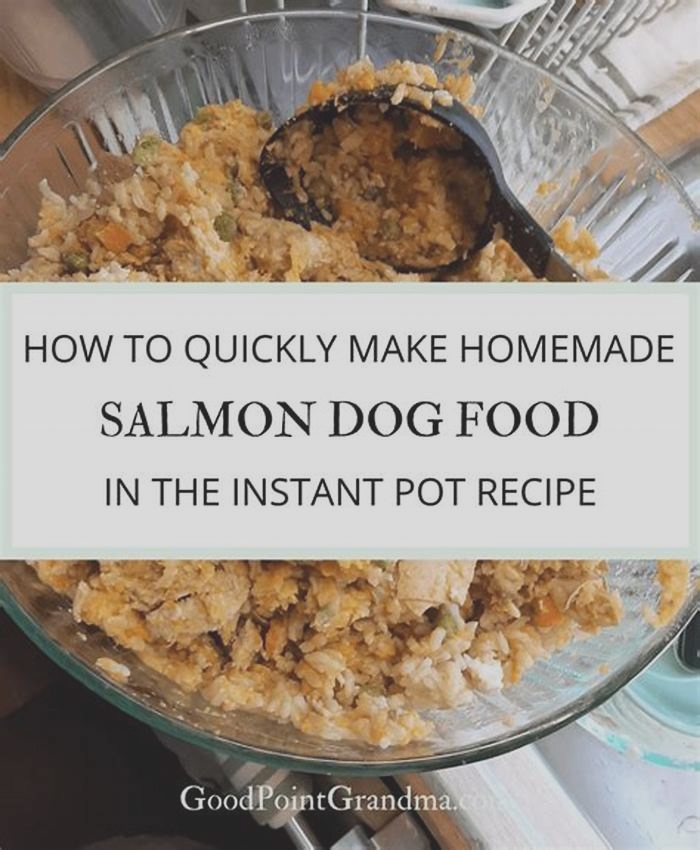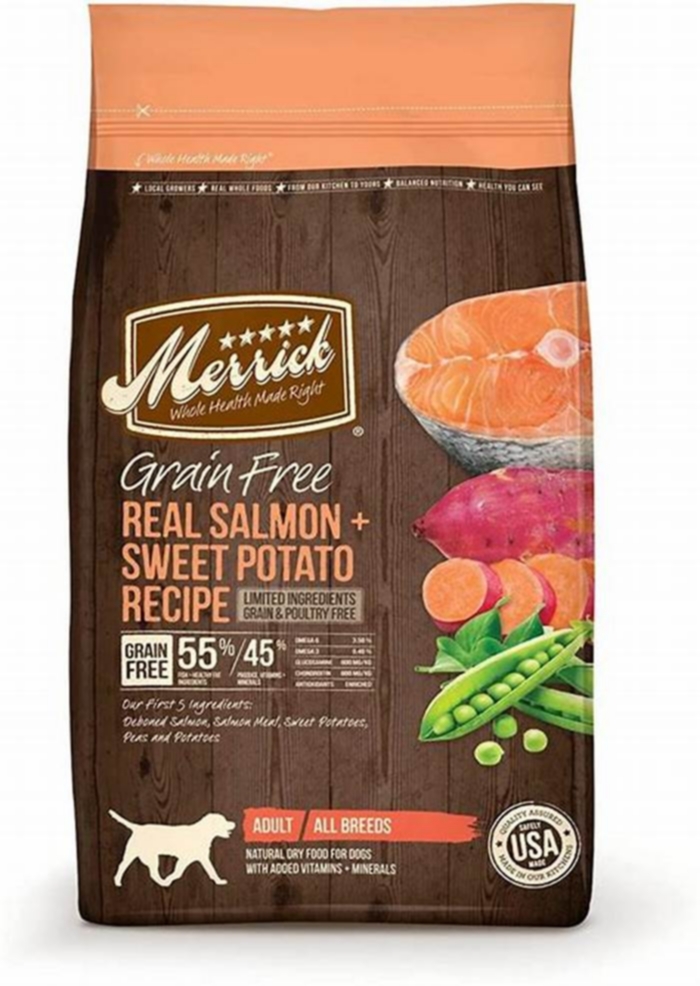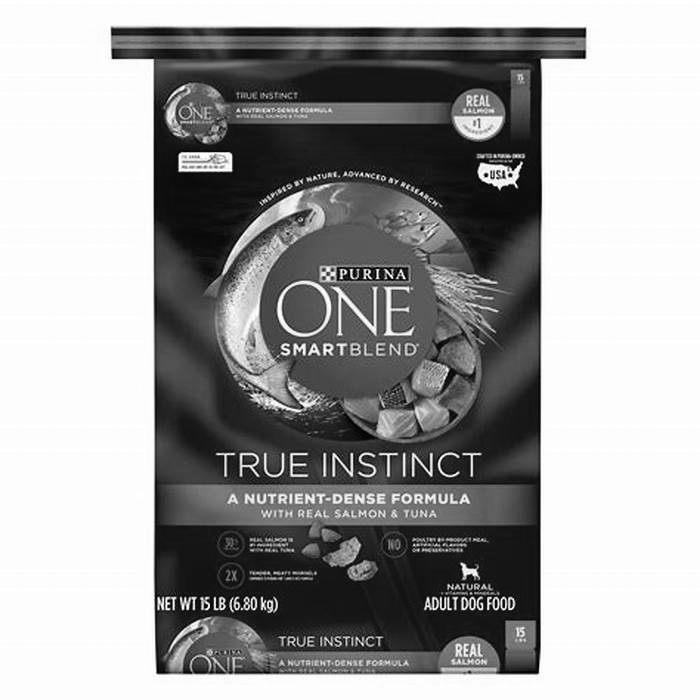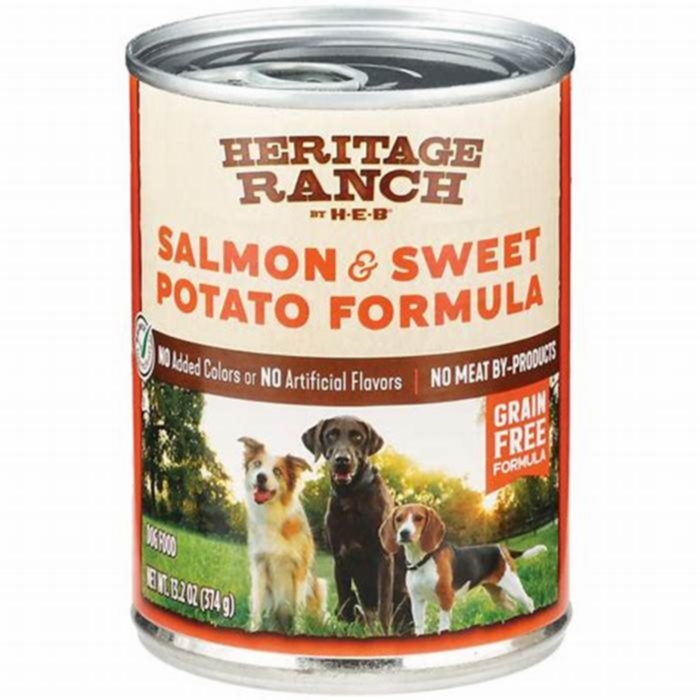can you put salmon in dog food
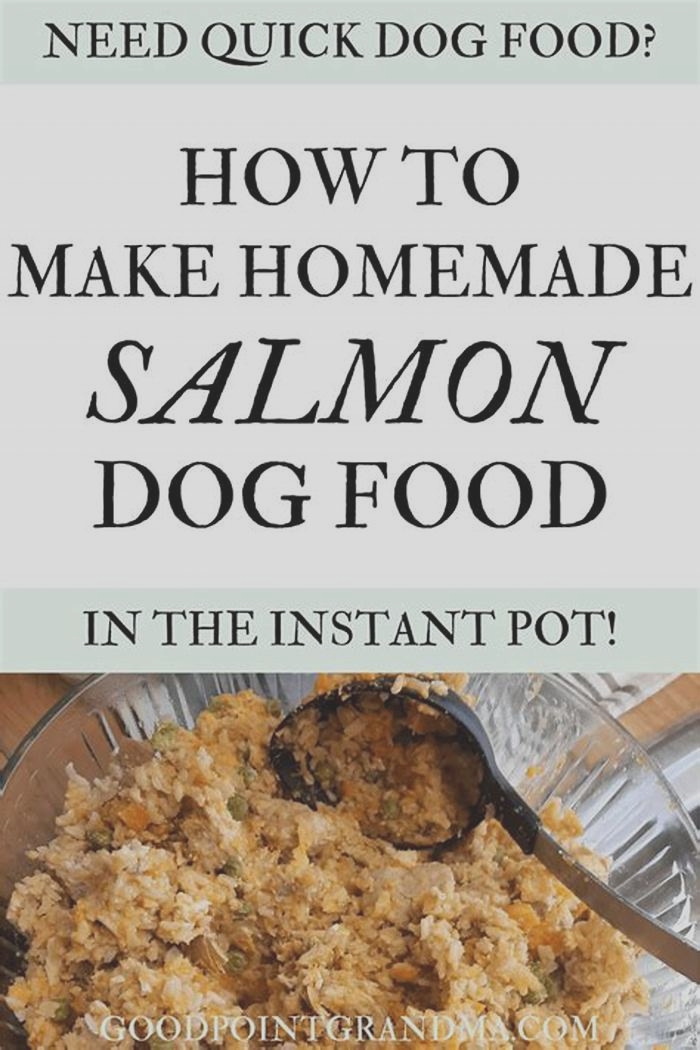
Heres How To Give Your Dog Salmon Oil, According To Vets
Its pretty well known that salmons super healthy for humans, but is it good for your dog, too?
It turns out there are actually lots of benefits of salmon for dogs, and you can give your pup salmon oil to take advantage of them.
The Dodo spoke to some vets to find out how to find the best salmon oil for dogs and how to give your dog salmon oil. Plus, we found some of the best salmon oil for dogs you can buy.
Benefits of salmon oil for dogs
Salmon oil contains EPA and DHA, which are omega-3 fatty acids that reduce inflammation. Dogs arent able to make their own omega-3 fatty acids, so its important to provide it for your pup, whether its in his food or with a supplement like salmon oil.
Salmon oil is rich in omega-3 fatty acids, which are great for bone, joint and heart health, Dr. Alex Crow, a veterinarian with The Happiest Dog, told The Dodo. It is also known to help reduce itchy and dry skin, which can be associated with allergies. When taken in moderation, your dog will most likely have better skin, shed less and will be better off as they age.
Salmon oil has a ton of health benefits, such as:
- Boosts overall immune system
- Helps with joint health and arthritis symptoms
- Supports skin and coat health
- Reduces allergy symptoms
- Supports cognitive function of senior dogs
- Promotes brain and eye development of puppies
- Supports heart health
- May help treat kidney disease
- May slow the growth of cancer
Side effects of salmon oil
While salmon oils super healthy for dogs, just like with any supplement, there are some side effects. Luckily, these side effects can be easily prevented or treated.
- Weight gain Adding salmon oil to your dogs diet will also add additional calories, so you should take that into account and adjust the amount of food you give him.
- Digestive problems Some pups might get an upset stomach when they first start taking salmon oil. You can prevent this by introducing it to your dog slowly. Give him only a little at first and gradually increase the amount so he gets used to it.
- Bad (fishy) breath Your dogs breath might smell like fish after eating salmon oil supplements, but you can get rid of the fishy scent by brushing his teeth, or try an unscented supplement instead (check out our top pick below).
How to use salmon oil for dogs
If you want to give your pup salmon oil, you can drizzle the liquid form on his dog food once a day, Dr. Crow said. There are also salmon oil capsules and chews available. For dogs who dont like pills, the liquid oil might be best because it can be mixed into their food.
Be sure to store the oil in the fridge or freezer so it doesnt go bad, and if you notice it starts to smell funky (worse than a normal fishy smell), throw it out.
Fish oil turns rancid in the presence of light, heat and oxygen, Dr. Sarah Wooten, a veterinarian with Pumpkin Pet Insurance, told The Dodo. In order to make sure the fish oil you are giving is protected, fresh and beneficial to your dogs health, buy from reputable companies, store fish oil in the freezer and make sure the container is opaque to protect the supplement from light.
How much salmon oil to give your dog
When giving your dog salmon oil, follow the instructions on the packaging. The dosage will be based on your pups weight.
Dr. Chyrle Bonk, a veterinarian with Hepper, also recommends asking your vet for advice on how much to give. Always ask your veterinarian before giving salmon oil to your dog, Dr. Bonk said. They will help you determine the right dose and way to give it.
The amount you give your dog will also depend on why youre giving him salmon oil.
If you want to feed your dog salmon oil for a specific medical condition, ask your vet because the dosage for each condition varies, Dr. Wooten said. For example, the dose needed for kidneys is one-fifth the dose needed for joint health.
Its super important to follow the directions on the packaging and the advice of your veterinarian since too much salmon oil can actually be bad for your dog. Youll have to strike the right balance of how much to give him.
Too much salmon oil given at once can cause stomach upset in dogs, which can lead to diarrhea, vomiting, compromised immune system and delayed wound healing, Dr. Crow said.
How to find the best salmon oil
There are some things you should consider when choosing a salmon oil supplement to make sure youre getting the right one for your pup and that its high quality. Heres what to look for:
- Form Salmon oil comes in many products specifically formulated for dogs, Dr. Bonk said. The most common type is a liquid form that can be put on their dry kibble. If your dog doesnt like this option, there are treats and chews that contain salmon oil as well.
- EPA and DHA The most important omega-3s salmon oil should have are EPA and DHA.
- Wild salmon When it comes to omega-3s, DHA and EPA from wild-caught, cold-water fish is the best source, Dr. Wooten said. Farm-raised fish have low levels of omega-3s and high levels of omega-6s.
- Not diluted The oil should ideally not be diluted with other products and shouldnt contain lots of preservatives. Always look out for added and unnecessary preservatives, Dr. Crow said. (Chewables will probably contain other ingredients to make up the chew.)
- Smell Unless you like fishy dog breath, youll probably want to look for an unscented or lightly scented oil. Try to find one that has a minimal smell, Dr. Crow said. A strong smell can linger if it is a very fishy oil.
Best salmon oil for dogs
Here are some salmon oils to try for your pup in every form you might need liquid, capsules, chews and unscented.
You can give your pup salmon oil as an extra healthy treat, and with a bunch of different forms to choose from, youll definitely be able to find one that your dog will enjoy.
We independently pick all the products we recommend because we love them and think you will too. If you buy a product from a link on our site, we may earn a commission.
Its A Protein-Rich Superfood, Can Dogs Eat Salmon?

Salmon is a tasty, protein-dense fish that works with any diet plan from paleo, Mediterranean to keto. As such, its easy to assume that adding this to your dogs diet can work wonders. However, can dogs eat salmon? Is salmon safe for dogs to eat?
As pet owners, you probably know by now that some of the healthiest human foods are extremely poisonous to dogs (think grapes and garlic). Thats why it doesnt hurt to be extra cautious when it comes to feeding dogs your leftovers.
When it comes to salmon, there are a couple of must-know facts which you ought to consider before finally deciding on whether you should or shouldnt feed salmon to your dog. Of course, were here to provide you with everything you need to know.
So hang on tight as we get into all the nitty-gritty details about salmon and its effect on your dog. Soon, youll find out the answer to your question can dogs eat salmon? and to all your other salmon-related queries.
Need-To-Know Salmon Facts
Salmon is a ray-finned fish that is considered an anadromous or a freshwater-born aquatic animal that lives the span of its life in saltwater. They, later on, swim upstream and go back to the river to spawn.
Considered as keystone species, salmon plays a vital role in maintaining the balance in the ecosystem. Unfortunately, salmon is facing a lot of threats, parasites and overfishing included.
The demand for salmon is increasing, and its easy to see why. Its a tasty fish that offers a lot of hearty nutrients. So, to keep up with the demand, salmon is now farmed in cages. And you know what? Many of the store-bought salmon are farm-bred.
Nutrition-wise, salmon provides a truckload of health benefits. This is why many consider this a superfood. Protein-dense and loaded with omega fatty acids, this fish also contains the following vitamins and minerals:
- Vitamin B12
- Vitamin D
- Phosphorus
- Vitamin A
- Selenium
Farmed Salmon Vs. Wild Salmon
If budget is not a concern, opt for wild-caught salmon. However, farmed salmon will do if theres no choice.
Both are rich in omega fatty acids and protein. The big difference is that wild-caught salmon contain more natural minerals (think iron and calcium) than farmed fish. It also has less harmful contaminants.

Can Dogs Eat Salmon?
The answer is a big YES. Dogs can eat salmon. This is one of the human foods which your dog can safely eat.
Fact is, salmon is a protein source commonly found in high-quality dog foods and dog treats (like salmon jerky). However, just like any other food, it is vital to feed salmon to your dog the right way to maximize the benefits and to avoid any health risks.
If you want to know how eating salmon will keep your dog healthy and how it can negatively affect your dog, read on. Youll find everything you want to know below.
Health Benefits Of Feeding Salmon To Dogs
Can dogs eat salmon? Yes. This well-loved and popular fish is indeed good for your furry friend.
So, if you can find fresh salmon or dog treats and dog food products with salmon listed as one of its top ingredients, go ahead and buy one.
Youll be glad you did, knowing that this rich-tasting fish offers a couple of great nutritional benefits for your dog. Here are some:
It Is Packed With Omega 3 Fatty Acids
Deemed as essential, omega 3 fatty acids provide tons of rewards. It keeps the immune system in check, helps reduce inflammation, and decelerates cancer cell growth.
Apart from that, developing puppies and senior dogs will also enjoy its heart and brain health-boosting features. Older dogs would further love eating salmon because of its ability to reduce joint or arthritis pain.
Lastly, if your dogs coat looks a bit dull and its skin dry, adding salmon to your dogs diet might help promote healthy skin and bring that sheen back to your dogs fur.
It Is Protein Dense
Healthy dogs need to eat a balanced diet or a diet rich in high-quality protein. Without this, your dog will be unable to function properly. After all, proteins role in your dogs body includes muscle and bone development, tissue repair, and nerve function regulation.
Since this is rich in protein, salmon is an excellent alternative if your dog is allergic to beef and chicken. Beef and chicken, after all, are among the typical food allergy triggers in dogs. Fish (like salmon), on the other hand, is less likely to cause any allergic reactions.
Promotes Healthy Weight Loss
If you have a dog that needs to shed some body weight, you might want to add salmon to its regular diet. Eating protein-rich foods has been known to control appetite by giving the feeling of fullness. It also helps increase metabolic rate or the bodys ability to burn calories and use up energy.

Potential Dangers Of Feeding Your Dog Salmon
Although the answer to your can dogs eat salmon question is yes, giving your dog salmon also comes with risks. So, before you even think of giving that slice of fresh salmon to your dog, make sure to know all the possible hazards.
True, salmon is healthy even for dogs. But feeding this hearty meal to your dog can quickly turn into a nightmare if its done the wrong way.
Choking Hazard
Salmon, like many other fish in the sea, contains small bones. When swallowed, these small bones can easily get lodged in your dogs airways, especially if you have a small breed dog.
Intestinal Blockage
The small bones may be able to go through your dogs airways, but these may still obstruct your dogs digestive tract. If this happens, watch out for signs of whining and hunching.
Your dog may also experience diarrhea, vomiting, weakness, and bloating. Contact your vet immediately if you notice any of these symptoms.
Infection
Raw salmon and undercooked salmon (smoked salmon included) contain harmful parasites (think parasitic flatworms like fluke). When a bacteria-infected parasite like a fluke enters your dogs body, you can expect this to wreak havoc.
According to MSD Vet Manual, if a dog eats raw salmon or undercooked salmon, the dog can get infected and experience the following:
Salmon Poisoning Disease
Despite the name, this infection isnt really caused by toxins or any poisonous compounds. On the other hand, this deadly condition is triggered by a bacteria called Neorickettsia helminthoeca, which can be found in fluke-infected raw fish like salmon and trout, and giant salamanders found in the Pacific Northwest.
A dog that eats an infected fish often shows signs of salmon poisoning 5 to 7 days after eating. Symptoms usually persist for 7 to 10 days. If left untreated, this can lead to death. Signs of salmon poisoning include the following:
- Fever
- Depression
- Loss of appetite
- Vomiting
- Diarrhea (may contain blood)
- Dehydration
- Swollen lymph nodes
- Nasal and eye discharge
Elokomin Fluke Fever
Unlike salmon poisoning disease, elokomin fluke fever is a milder infection caused by the bacterium Neorickettsia elokominica. While this would less likely cause severe GI problems, your dog would most likely develop lymph node-related diseases.

Tips On How To Prepare Salmon For Your Dogs & More
After reading all the pros and cons, you might think that youre now ready to let your dogs eat salmon. Well, youre halfway there.
Since the risks involved are great, its always a good idea to follow these tried-and-tested tips. This will ensure that your dog gets to have a tasty fish dinner minus the hassle of unwanted complications that require frequent visits to the vet.
Get Rid Of All Those Tiny Bones and Scales
Since these are choking hazards, make sure to remove these parts of the fish. If you dont have time to scale or debone the fish, you can always buy fresh boneless fillets.
Never Feed Raw Or Undercooked Salmon
Can dogs eat salmon raw? The answer is NO. Feeding your dog raw salmon and even under cooked salmon is a bad idea.
Salmon poisoning or even the milder version is not a pretty sight. As such, you shouldnt let your dog eat raw salmon as well as those that are undercooked.
Now, you might be wondering if you can let your dogs eat smoked salmon. Eating smoked salmon is the same as allowing your dogs to eat raw salmon. Smoked salmon may still contain parasites. On top of that, this is also high in salt, which is also bad for dogs.
Serve It Well Cooked & Plain
There are plenty of ways to cook salmon. You can either poach, bake, steam, grill, or roast salmon. Whichever way you want it cooked, just make sure to serve well-cooked salmon to your dogs.
According to USDA Food Safety & Inspection, fish (in general) should be cooked at a minimum internal temperature of 145F.
When cooking salmon for your dog, serving it plain is the way to go. Remember that oil, butter, and seasonings like onion and garlic are bad for your dogs health.
Portion Control Is Key
Like any other food (dog food included), salmon should be given in appropriate portions. The question is: How much salmon can dogs eat?
Salmon should only be given once a week. The amount to give should not go more than 100 grams for every 10 pounds of your dogs weight.

Final Thoughts
Yes, well-cooked salmon is good for dogs. If you have time to whip up something for your dog, check out all the recipes below.
But if youre too busy and cooking salmon isnt really your thing, you can also give your dog salmon products that are proven safe for your furry pals.
This includes canned salmon or tinned salmon. Just make sure to choose the canned salmon variants packed in water instead of oil or brine.
Now, if you want to know if its okay to let dogs eat salmon skin, the answer is yes as long as its cooked thoroughly. Salmon skin, after all, offers the same benefits as salmon itself. Salmon oil can also be added to your pets dinner every now and then.

